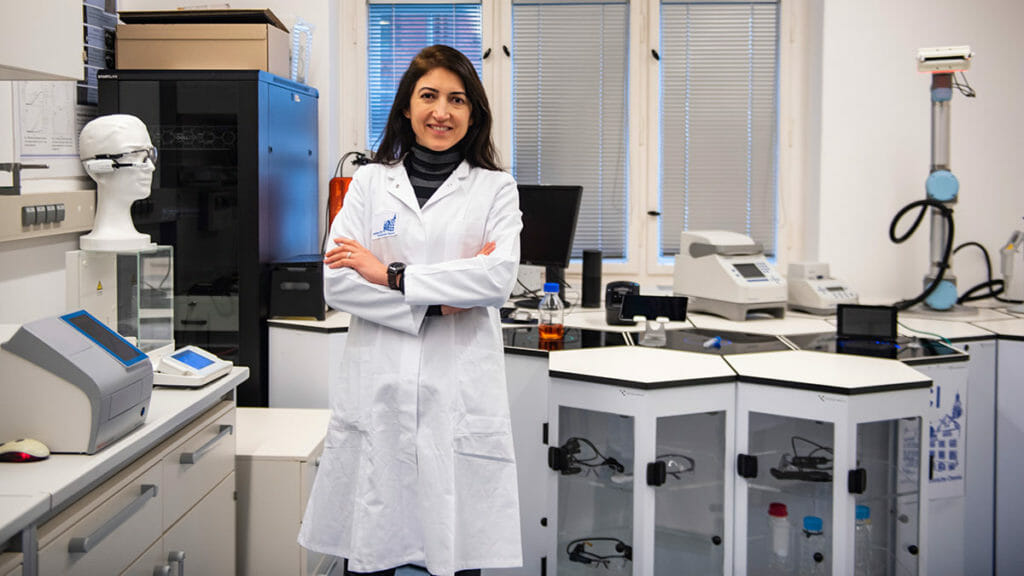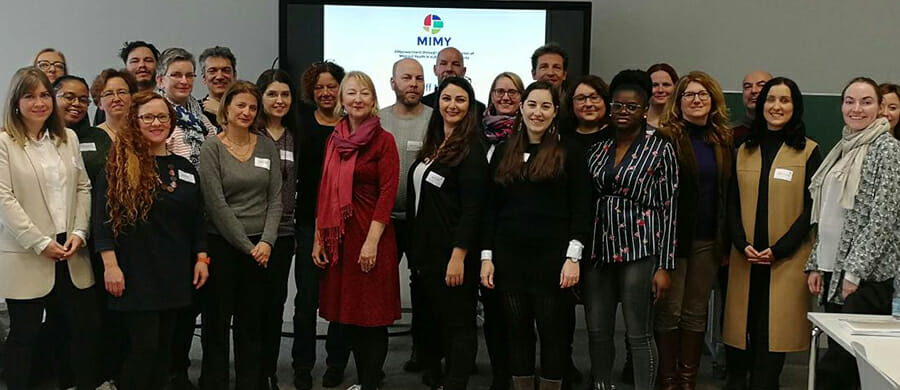Leibniz University Hannover
Institute for Technical Chemistry
DATA & FACTS
Project
DECADES – Research into the development of green solvents for sustainable bioprocesses (2023-2027)
Scientific contact
Prof. Dr.-Ing. Selin Kara
EU-Funding line
MSCA – Horizon Europe
Projektleitung: Prof. Dr.-Ing. Arno Kwade
Projektname: „Li-Ion Pilot Lines Network“ (LiPLANET)
Keywords: Energie, Mobilität, Partner
DECADES – Research into the development of green solvents for sustainable bioprocesses
Novel biobased products: European Commission approves the DECADES project under the leadership of Leibniz Universität Hannover
The chemical industry is currently facing the challenging transformation of replacing classic, chemical manufacturing processes based on petroleum with sustainable, bio-based products, in line with the concept of a circular bioeconomy. Solvents, in particular, play a crucial role in the chemical industry along the entire production chain. They are needed to dissolve raw materials at the beginning of the manufacturing process, but are also required for the isolation and conditioning of products at the end. Consequently, there is an urgent need for novel solvents which can significantly improve synthesis processes while also being environmentally friendly and cost-efficient for the industrial bioeconomy.
This is where the DECADES project, led by Leibniz University Hannover (LUH), comes in. Six universities from Germany, Austria, Spain and the Netherlands and ten industry partners from different countries have joined forces to develop sustainable solvents for the European biotech sector and thus contribute to the goals of the European Commission’s European Green Deal. The project has received €2.6 million in funding from the European Commission under the HORIZON Marie Sklodoswka Curie Action Doctoral Networks (MSCA-DN) scheme.
“We will exploit the benefits of green solvents in two ways: First, by transferring knowledge from state-of-the-art basic research to industrial applications, and second, by optimizing solvents holistically, spanning their production, application, and environmental impact along the entire process,” explains Prof. Dr.-Ing. habil. Selin Kara, head of the Institute of Technical Chemistry at LUH and coordinator of DECADES.
The research project aims to increase the efficiency and sustainability of industrial biocatalysis via so-called “safe and sustainable-by-design” solvents. In an interdisciplinary approach, all key aspects are to be considered from a holistic perspective. These aspects include the biogenic origin of the raw materials, the use of efficient (bio)catalysts with reduced environmental impact, environmentally-friendly process conditions, and tailor-made sustainable solvents. In addition, the DECADES project also aims to address training gaps and mitigate the growing shortage of skilled workers by bringing together Europe’s leading academic and industry partners in a training network – based on the principle that education at all levels is crucial to achieving sustainability goals. To achieve the necessary growth in the fields of green technologies, renewable energy, and the bioeconomy, an efficient transfer of knowledge in terms of both marketable products and highly-skilled doctoral candidates is indispensable.

Date:
23.05.2022
This might also interest you …

ProjeCt: MIMy
The EU research project MIMY aims to improve the situation of young migrants in Europe via a multi-level analysis of their integration processes. The interdisciplinary and international consortium is collecting qualitative and quantitative data and will conduct case studies in different countries to analyse the social and economic impact of …

ERC Consolidator Grants
Research on complex quantum systems and new chemical insights into terpenes: Two researchers of Leibniz University Hannover (LUH) have each been awardedone of the internationally coveted ERC Consolidator Grants. The funding line of the European Research Council (ERC) addresses researchers…
